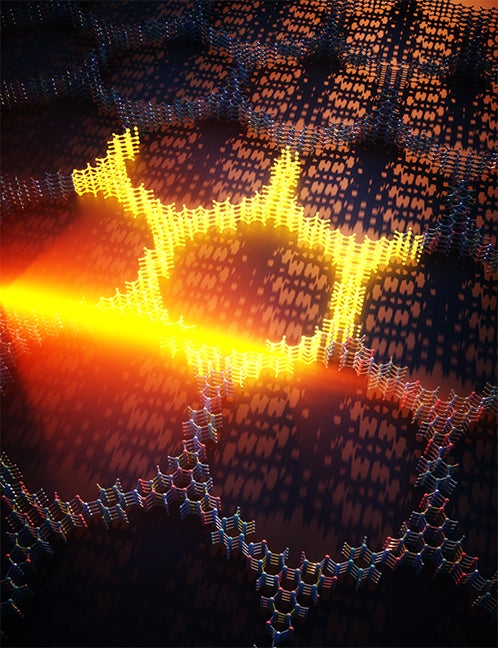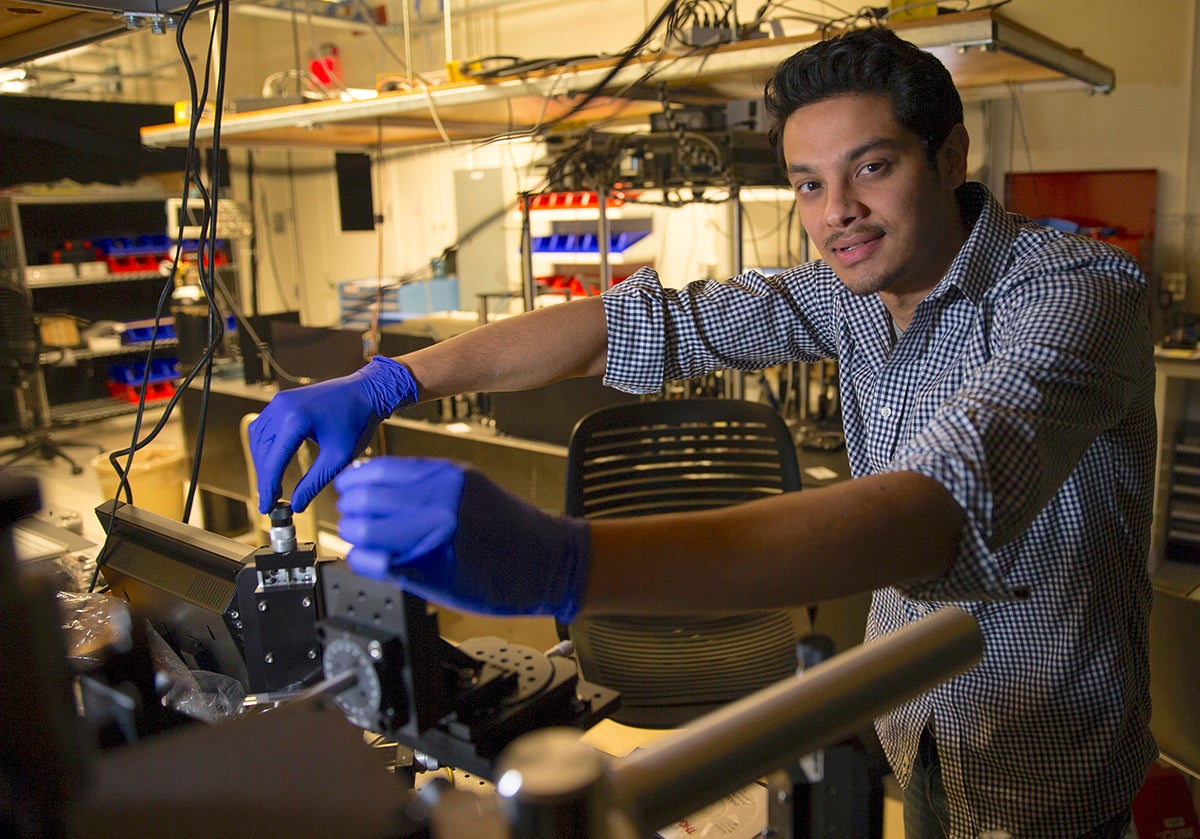Office of Naval Research awards URI mechanical engineering professor three-year, $500,000 research grant
KINGSTON, R.I. – June 3, 2021 – Each year, electronic devices get smaller, lighter and more powerful. However, as integrated circuits and computer chips shrink in size, managing the heat they produce becomes a bigger challenge.
Ashutosh Giri, assistant professor of mechanical engineering at the University of Rhode Island, is researching how to prevent heat buildup at the nanoscale to make electronic systems more efficient.

Giri’s research, titled “Unraveling the Microscopic Dynamics of Coupled Energy States in Nanostructures,” is funded through the Office of Naval Research’s (ONR) Young Investigator Program. The three-year grant is for $500,000.
The research could apply to many different fields, but the Navy is particularly interested in how it will improve its energy systems and technology.
“The research could enable new forms of electronic cooling and revolutionary thermal management strategies that could prove crucial for the Navy’s future microelectronic systems,” said Giri.
According to Giri, while there is a fundamental understanding of how heat flows at the macroscale, there is still a lot to learn about how heat moves at the nanoscale.
“How heat flows at the nanoscale is not well understood,” said Giri. “This lack of understanding has severely restricted the potential of our modern technologies to reach their maximum efficiencies.”

Giri will take a cross-disciplinary approach to the research project. One person he’ll be collaborating with is Dugan Hayes, assistant professor of chemistry at URI.
“I’m looking forward to working with Dugan, who I’ve already been collaborating with on one of his projects that involves understanding the properties of materials used for solar energy conversion,” said Giri.
Also working with Giri will be Patrick Hopkins, professor of mechanical and aerospace engineering at the University of Virginia, and Will Dichtel, professor of chemistry at Northwestern University.
“Professor Dichtel will provide the nanomaterials, which his research group fabricates,” said Giri. “Professor Hopkins and I will measure the optical, thermal and mechanical properties of the materials and I will also provide computational support.”
The project will build upon previous research Giri, Hopkins and Dichtel conducted together on a new polymer-based electrical insulation for circuits that could help put more power in smaller spaces.
“Our goal is to create functional nanomaterials to replace the bulky solutions currently being used to increase the flow of heat away from a concentrated hot spot,” said Giri. “We’ll be making the devices easier to work with and more compact.”
The highly competitive Young Investigator Program provides awards to outstanding early-career scientists and academics based on their achievement and potential for scientific breakthroughs. Giri is one of 38 academic scientists at 23 institutions to receive the honor this year.
Brennan Phillips, assistant professor of ocean engineering at URI, also received a Young Investigator award for “Ultralight, Economical, and Adaptable Solutions for Deep-Sea UUVs And Distributed Sensing Using Fiber-Optic Tethers.”

